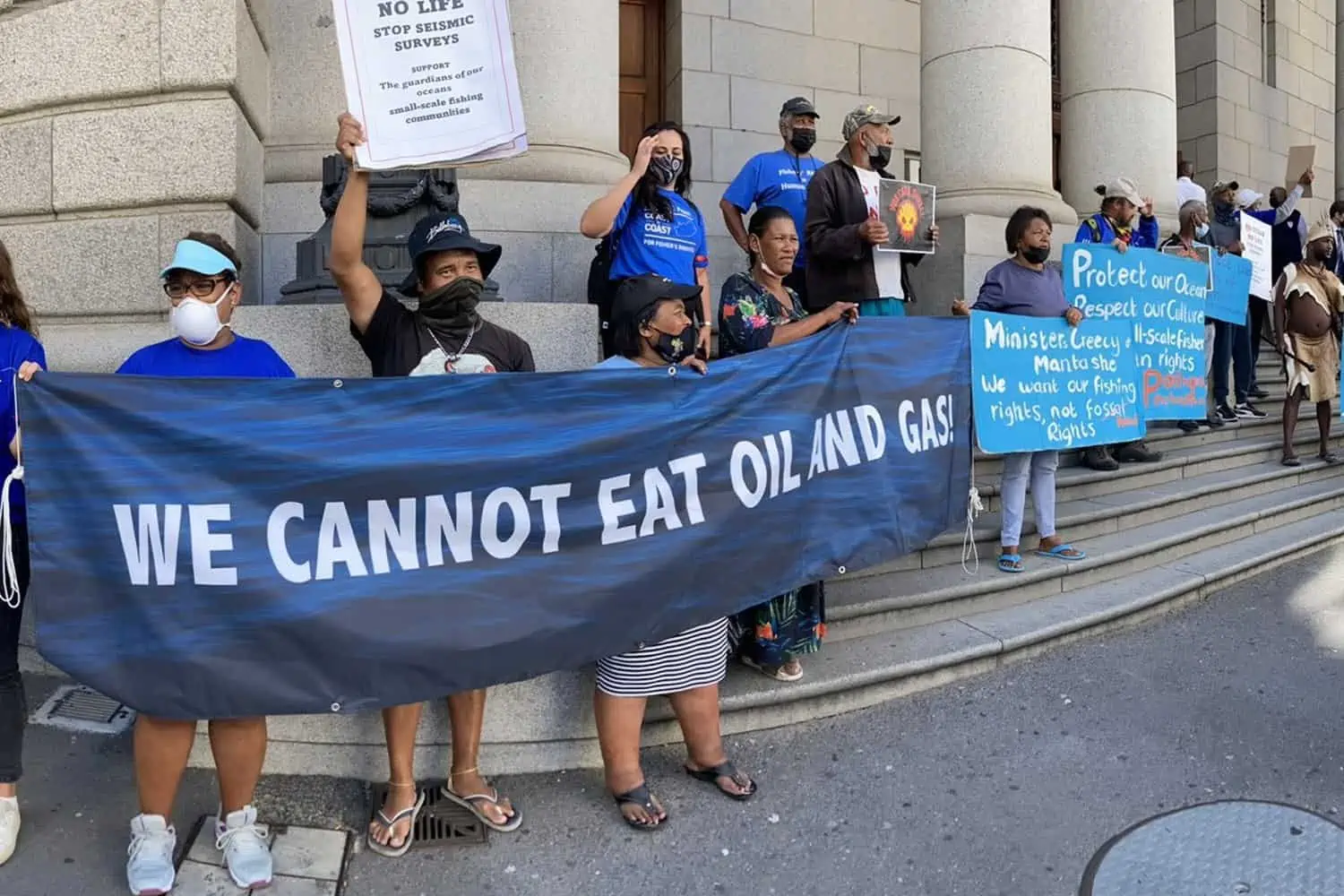Yesterday, on the 7th of February, our indigenous fishing communities went to court again. But this time to stop the Australian company, Searcher Seismic, from continuing a search for fuel along the western coastline of South Africa. Specifically, the area stretching between the Namibian border and Cape Agulhas. And these communities, represented by the Legal Resources Center South Africa, went home victorious.
Details of the Application
Similar to the interdict against Shell in December 2021, the argument against Searcher Seismic is that their reconnaissance permit granted by Petroleum Agency South Africa (PASA) in May 2021 was unlawful. In the first place, Searcher Seismic did not consult with interested and affected communities when it applied for the permit. And secondly, “Searcher has not obtained environmental authorisation as required”. Since the Australian geoscience data supplier has yet to obtain this authorisation in terms of the Mineral and Petroleum Resources Development Act (MPRDA) and the National Environmental Management Act (NEMA).
Furthermore, like the application against Shell’s survey, the applicants have submitted two parts. Part A requests an urgent interdict to halt Searcher Seismics survey pending part B. Which is a legal challenge of the reconnaissance permit originally granted.
The Verdict
Judge Daniel Thulare granted the interim interdict on Monday 7 February. Stating that Searcher Seismic is “to discontinue any activities intended to give effect to or related to the seismic survey of the west and southwest coast of South Africa that commenced on 24 January”.
Although there is speculation as to whether the judgment was in favour of the applicants due to Searcher Seismic’s failure to submit answering affidavits before the hearing on Monday. The Australian company did not even correspond with the applicants to request more time to files its papers. Something which the applicants were open to giving. Tembeka Ngcukaitobi, SC, who represented the applicants, argued that this was a non-compliance to the timetables set by applicants. And that the court should grant a default judgment. He argues that Searcher “unilaterally elected” not to file answering affidavits.
Searcher has since agreed to file their papers on 9 February and applicants will file replying affidavits on 25 February. The court has scheduled a new hearing with each party’s heads of argument for the 7th of March 2022. Until then, Searcher Seismic is to stop all blasting.
